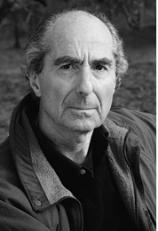American Pastoral
Review
American Pastoral
When fate deals a blow so devastating that life becomes unhinged, survival dictates the need to clutch for a solid foundation, an anchor of stability. In AMERICAN PASTORAL that anchor is the remembrance of the collective moments of a time when the world seemed simpler and the tragedies of life had yet to dent the armor of youth's enthusiasm.
Swede Levov was a legendary athlete in the Weequahic district of Newark, New Jersey, and a personal hero of Nathan Zuckerman. Zuckerman encounters Swede's brother at a high school reunion and learns that Swede has died of cancer. From a few facts, Zuckerman begins to imagine the life of his boyhood idol.
Swede and Nathan came from a place where "slum-reared Jewish fathers whose roughhewn, undereducated perspective goaded a whole generation of striving, college-educated Jewish sons: a father for whom everything is unshakable duty, for whom there is a right way and a wrong way and nothing in between, a father whose compound of ambitions, biases, and beliefs is so unruffled by careful thinking that he isn't as easy to escape from as it seems. Limited men with limitless energy; men quick to be friendly and quick to be fed up; men for whom the most serious thing in life is to keep going despite everything. And we were their sons. It was our job to love them."
Following in his father's footsteps, Swede takes over the glove manufacturing business that his father built, marries a beauty queen and before long has a daughter of his own. With a successful business and a loving family, Swede's life seems rich indeed. Just the observance of his wife and daughter thrills Swede:
"How he loved to sight them doing together what mothers and daughters do. To a father's eye, one seemed to amplify the other...the wife now a little past her robust moment and the daughter edging up to the beginning of hers. A delineation of life's cyclical nature that left him feeling afterward as though he had a spacious understanding of the whole female sex... In those quiet moments from which he was excluded (daughter relying on mother, Dawn and Merry emotionally one inside the other like those Russian dolls), Merry appeared more poignantly than ever not a small replica of his wife, or of himself, but an independent little being --- something similar, a version of them, yet distinctive and new --- from which he had the most passionate affinity."
Yet in the midst of the sunny idyll, things begin to go horribly wrong. In her teens, Merry begins to rebel. Haunted by the horrific visions of monk self-immolations in protest of the Vietnam war, Merry looks for an outlet for her fear and anger. After hooking up with a militant group, Merry is implicated in a bombing of the local post office during which a resident doctor is killed. She flees, and the life of Swede Levov takes a disastrous turn.
Philip Roth does a marvelous job of evoking a time of unrest in this country and how the larger circle of events impact life on the personal level. In detailing the fragile heart of a father trying to save his daughter despite her horrendous actions, Roth's skills reach far beyond the boundaries encompassed by his earlier work. He embraces his characters and, in doing so, draws us into this touching and tragic tale.
Reviewed by Vern Wiessner on January 20, 2011
American Pastoral
- Publication Date: February 3, 1998
- Genres: Fiction, Literary Fiction
- Paperback: 432 pages
- Publisher: Vintage
- ISBN-10: 0375701427
- ISBN-13: 9780375701429





